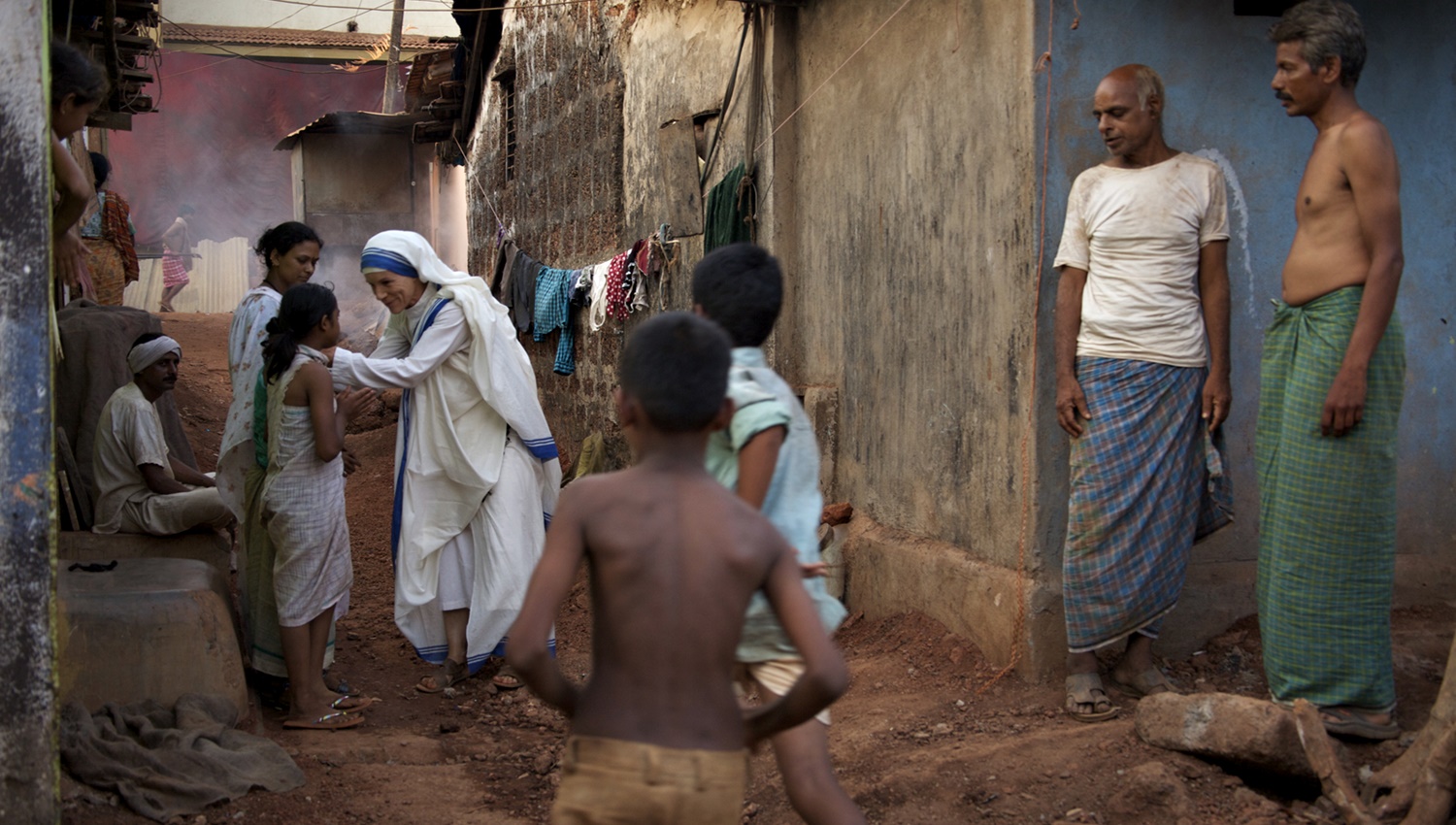
The Letters
Dustin Chase
If television director William Riead was aiming to create a film with the ultimate purpose of delivering dates and information, then one might measure The Letters as a success. However the screenplay by Riead never fully engages the audience, as it explores the early life of Mother Theresa. Dates and locations are flashed across the screen for the first ten minutes of the film, until we understand this framing technique of Sydow and Hauer’s roles, on screen narrators looking back on the life of the nun who devoted her life serving the poor in honor of God.
Prior to taking vows and becoming a nun, Anjezë Gonxhe Bojaxhiu admits she always wanted to help people who couldn’t help themselves. Sister Theresa (Stevenson) she was known in 1946, worked as principal and teacher in Calcutta during a time of great tension in India as they prepared for their independence. Theresa never saw the poor people outside the gates of the school as Hindu or Muslim, only people in need of her help. On a train for a field trip, Theresa says God spoke to her, “a call within a call”, she explained. Seeking the opportunity to serve the poor, Theresa asked the Pope to relinquish her of vows in order to exit the convent walls into the street and serve God’s purpose.
Riead’s notion to put this saint’s life on film might have worked better as a documentary style presentation as his research at least feels vetted.
The Letters attempts to do what Gandhi did back in the 80’s, but that film had a major budget and shot in locations all over India, delivering his story as a surmountable cinematic achievement, not to mention a career defining performance from Ben Kingsley. Certainly reflective of the life of the subject, The Letters is small, unflattering and very simple. Some scenes are over-dramatized, making it feel like a film more suited for PBS or Lifetime, yet other segments fail to take advantage of more interesting aspects of Mother Theresa’s life. Stevenson (Mona Lisa Smile, Being Julia) is a lifelong supporting actress finally getting a leading role, but there isn’t much for her to do after the character leaves the convent and begins walks the slums to assist in any way she can. It’s a looks and glances performance.
The script tries to make tension often where I suspect there wasn’t very much, we see one of the nun’s in subplot resist the popularity of Mother Theresa as young girls request to go follow her cause. Riead’s notion to put this saint’s life on film might have worked better as a documentary style presentation as his research at least feels vetted. Midway through the film all interest is lost once we begin to enter the period most of us are familiar with, at least her beginnings
Final Thought
Doesn’t offer the viewer much in the way of cinematic storytelling beyond just forking over information.
